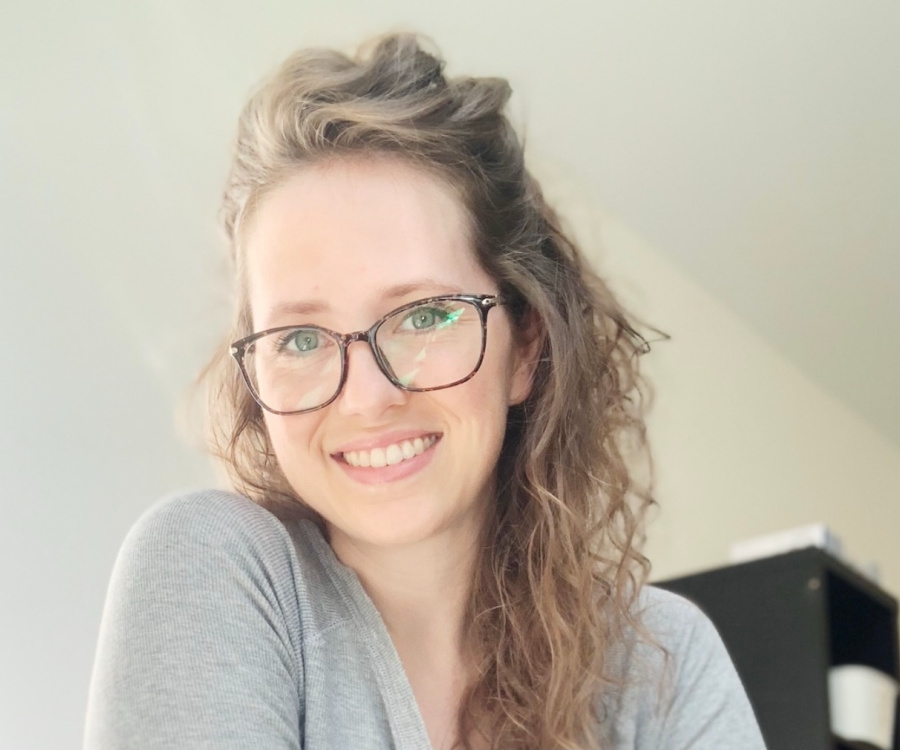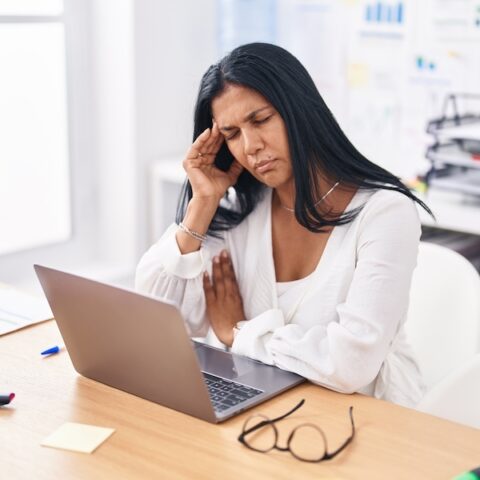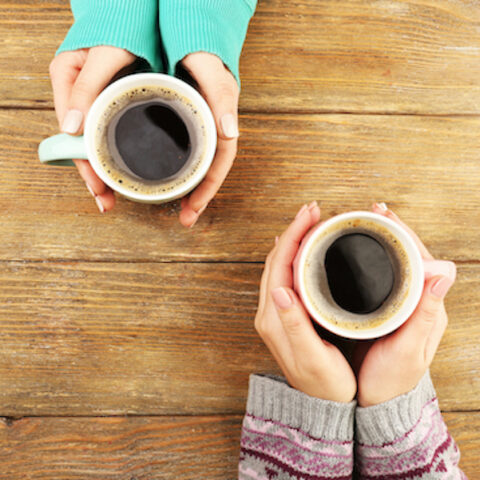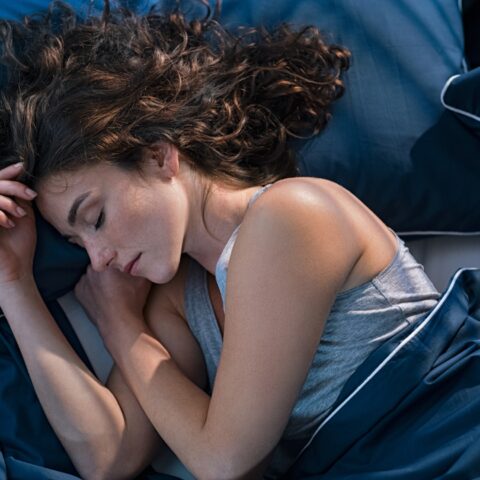Want to Optimize Your Health? Get Better Sleep.
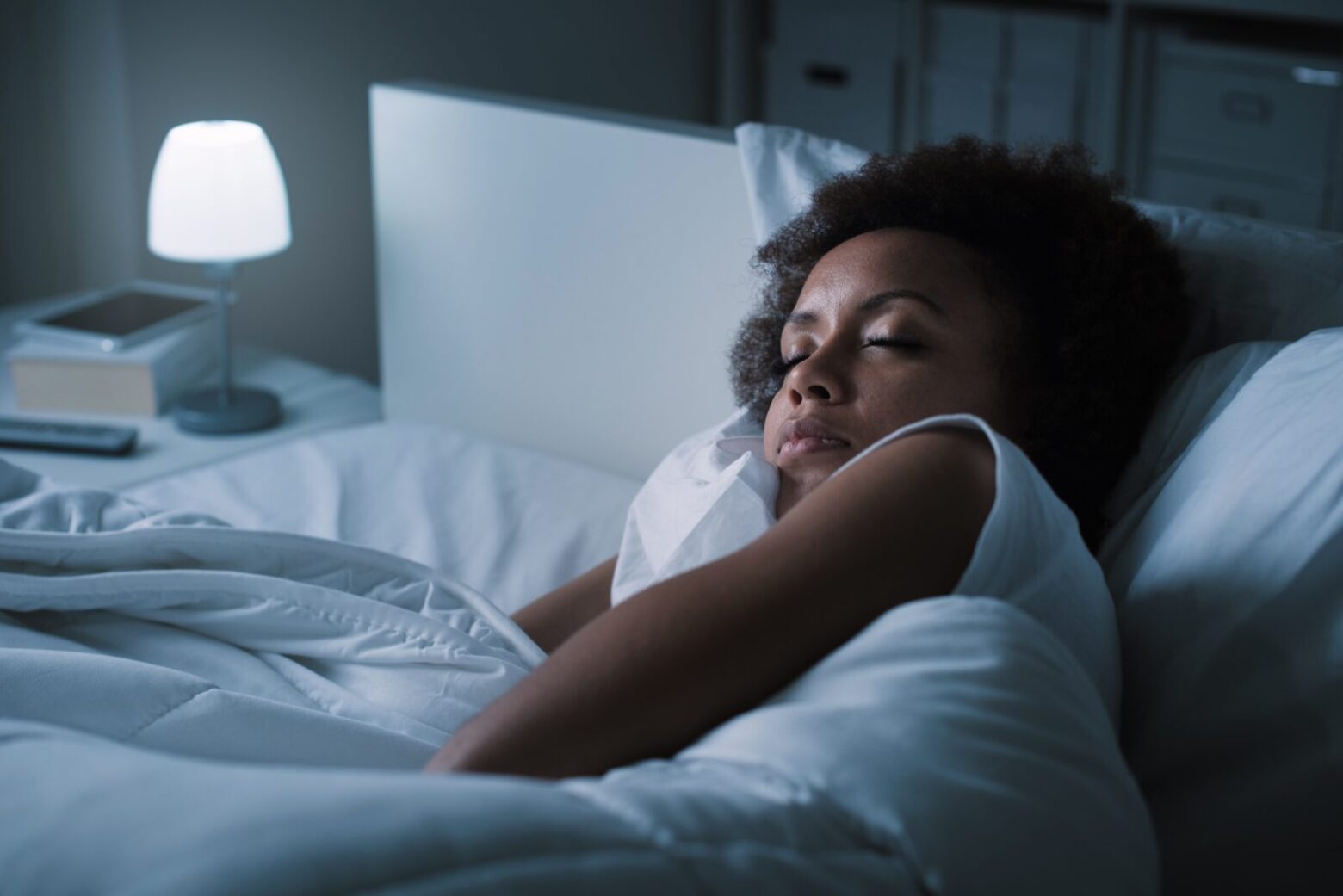
For many people, sleep is an afterthought at the end of a long day, or a reward you’ve earned for completing your to-do list. But sleep should be prioritized alongside a healthy diet and exercise. Without enough sleep, you effectively sweep the legs out from under your healthy living habits.
Here’s what happens to your body when you don’t get enough sleep, and how to make changes in your everyday life to start banking the z’s you need.
The Downfalls of Skimping on Sleep
When you don’t get enough sleep, your entire health suffers. Poor sleep is tied to low immunity, hampered cognitive performance, reduced memory, and mood instability. [1, 2, 3]
There’s also a connection between poor sleep and obesity. When you’re short on sleep, you tend to eat more food the next day. It’s the body’s way of trying to compensate for the lack of energy.
Of course, food can never replace the vital impact that sleep has on cellular health and the body’s ability to repair and reset. Research from Nutrients in 2020 found that regardless of the number of quality sleep nights between sleep-deprived nights, those who had interrupted sleep ate more food. [4]
So, how much sleep do you really need? It all depends on your individual needs, but researchers have found that people who consistently get fewer than seven hours of sleep per night were more likely to be obese than those who got more sleep. [5]
How to Get Better Sleep
It can be a challenge to prioritize sleep in the fast-paced, workaholic culture that we live in. Plus, working from home during a pandemic has worsened sleep for people who previously slept well. [6] The stress, uncertainty, and health concerns with the COVID-19 pandemic have led to circadian disruptions, making it harder to go to sleep, stay asleep, and get up in the morning. [7]
What do you do if your sleep has been disrupted from the pandemic, work or economic stress, or the constant challenge of parenting small children (whose sleep may also be disrupted)?
There are several ways to create an environment, both physically and mentally, to get better sleep.
1. Manage your stress
Managing stress is perhaps harder than ever, but there are ways to do it even in the midst of busy schedules and staying at home.
Here are a few techniques to try:
- Mindfulness: Relaxation practices, like mindfulness and meditation, have a good track record for improving sleep quality and quantity. [8] There are smartphone-based apps, like Headspace and Calm, that can coach you from your couch. Be sure to use them regularly—set a calendar alert and treat them like any other appointment. You will only get value if you use them!
- Therapy: Working with a therapist is a great way to modulate stress that may be impacting your sleep. If you don’t have insurance, try smartphone-based options like Talkspace, where you can get access to a therapist from home, likely for more affordable rates.
- Hobbies: Having a hobby can also be a great way to support your mental health, which can support healthy sleep in a roundabout way. If you have something you love to do but can’t justify spending time on it, consider this your permission.
2. Turn off electronics
You can’t force your body to sleep, but you can restrict the amount of stimulation that you get in the hours leading up to bedtime. This can help to improve your brain’s ability to shut down for sleep.
The biggest culprit of sleep disruption: blue light. Turn off your TV, switch off your devices, and do a quiet activity like reading or puzzles before bed. Even just putting down your smartphone for at least 30 minutes before bed can improve your ability to fall asleep and stay asleep. [9]
If there are occasions when you must work late on your computer or smartphone, you might consider investing in some blue-light-blocking glasses to minimize the blue light exposure. Research has shown them to increase subjectively measured sleep quality and objectively measured melatonin levels and sleep duration. [10] Alternatively, switch your device to night mode.
3. Create a sleep sanctuary
You can prime your body for sleep by making sure your bedroom is dark, cool, and quiet. If any of these factors are influencing your sleep, it’s time to reassess your sleep hygiene.
First, your room should be as dark as possible. If you can’t make your room fully dark due to street lights, invest in blackout curtains or wear a sleep mask.
The optimal temperature for sleep is between 66-69ºF. If you’re too warm or too cold, your body won’t be able to settle into the full range of sleep phases. [11] Set your thermostat to a temperature that works for you, but this range is a good starting point.
Finally, make sure your room is free from excess noise. If you are a light sleeper or have street or other types of noise that are constant in your bedroom, use a white noise machine or a fan to help facilitate a better sleep environment.
The Bottom Line
You don’t just feel mentally drained after a poor night’s sleep—your body is suffering, too. Try these tips for priming yourself for a better night’s sleep to see if it makes a difference. Don’t forget to eat a healthy diet and get enough exercise every day for the trifecta of healthy living.
For more on the science of sleep and how to improve the quality of your sleep habits, check out this podcast: The Importance of Sleep, Monitoring Devices, and Changing Your Routine, with Dr. Shona Halson.
References
- Haspel, J. A., Anafi, R., Brown, M. K., Cermakian, N., Depner, C., Desplats, P., Gelman, A. E., Haack, M., Jelic, S., Kim, B. S., Laposky, A. D., Lee, Y. C., Mongodin, E., Prather, A. A., Prendergast, B. J., Reardon, C., Shaw, A. C., Sengupta, S., Szentirmai, É., Thakkar, M., … Solt, L. A. (2020). Perfect timing: circadian rhythms, sleep, and immunity – an NIH workshop summary. JCI insight, 5(1), e131487. https://doi.org/10.1172/jci.insight.131487
- Kaliyaperumal, D., Elango, Y., Alagesan, M., & Santhanakrishanan, I. (2017). Effects of Sleep Deprivation on the Cognitive Performance of Nurses Working in Shift. Journal of clinical and diagnostic research : JCDR, 11(8), CC01–CC03. https://doi.org/10.7860/JCDR/2017/26029.10324
- Triantafillou, S., Saeb, S., Lattie, E. G., Mohr, D. C., & Kording, K. P. (2019). Relationship Between Sleep Quality and Mood: Ecological Momentary Assessment Study. JMIR mental health, 6(3), e12613. https://doi.org/10.2196/12613
- Spaeth, A. M., Goel, N., & Dinges, D. F. (2020). Caloric and Macronutrient Intake and Meal Timing Responses to Repeated Sleep Restriction Exposures Separated by Varying Intervening Recovery Nights in Healthy Adults. Nutrients, 12(9), 2694. https://doi.org/10.3390/nu12092694
- Cooper, C. B., Neufeld, E. V., Dolezal, B. A., & Martin, J. L. (2018). Sleep deprivation and obesity in adults: a brief narrative review. BMJ open sport & exercise medicine, 4(1), e000392. https://doi.org/10.1136/bmjsem-2018-000392
- Kocevska, D., Blanken, T. F., Van Someren, E., & Rösler, L. (2020). Sleep quality during the COVID-19 pandemic: not one size fits all. Sleep medicine, 76, 86–88. https://doi.org/10.1016/j.sleep.2020.09.029
- Salehinejad, M. A., Majidinezhad, M., Ghanavati, E., Kouestanian, S., Vicario, C. M., Nitsche, M. A., & Nejati, V. (2020). Negative impact of COVID-19 pandemic on sleep quantitative parameters, quality, and circadian alignment: Implications for health and psychological well-being. EXCLI journal, 19, 1297–1308. https://doi.org/10.17179/excli2020-2831
- Rusch, H. L., Rosario, M., Levison, L. M., Olivera, A., Livingston, W. S., Wu, T., & Gill, J. M. (2019). The effect of mindfulness meditation on sleep quality: a systematic review and meta-analysis of randomized controlled trials. Annals of the New York Academy of Sciences, 1445(1), 5–16. https://doi.org/10.1111/nyas.13996
- He, J. W., Tu, Z. H., Xiao, L., Su, T., & Tang, Y. X. (2020). Effect of restricting bedtime mobile phone use on sleep, arousal, mood, and working memory: A randomized pilot trial. PloS one, 15(2), e0228756. https://doi.org/10.1371/journal.pone.0228756
- Ostrin, L. A., Abbott, K. S., & Queener, H. M. (2017). Attenuation of short wavelengths alters sleep and the ipRGC pupil response. Ophthalmic & physiological optics : the journal of the British College of Ophthalmic Opticians (Optometrists), 37(4), 440–450. https://doi.org/10.1111/opo.12385
- Harding, E. C., Franks, N. P., & Wisden, W. (2019). The Temperature Dependence of Sleep. Frontiers in neuroscience, 13, 336. https://doi.org/10.3389/fnins.2019.00336
Aimee McNew
Aimee McNew is a nutritionist and writer who focuses on women’s health, infertility, and postpartum wellness.
More About The Author